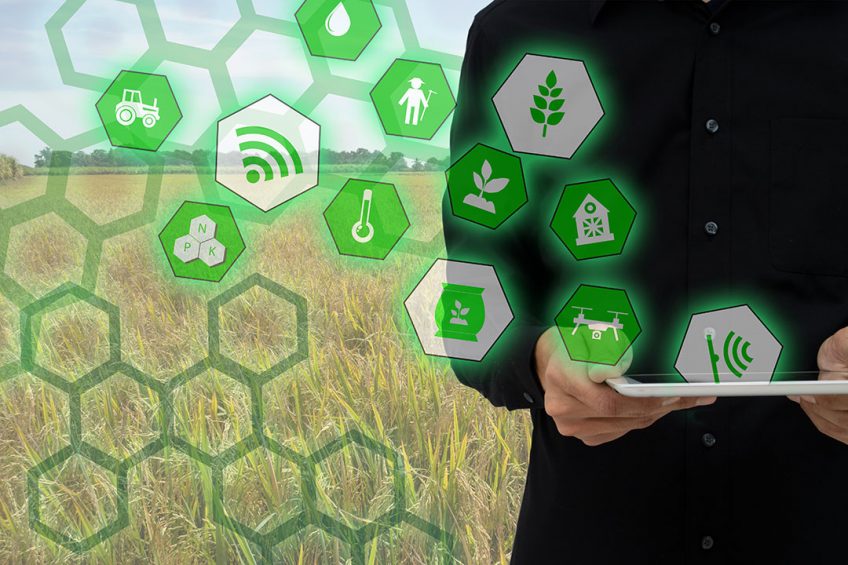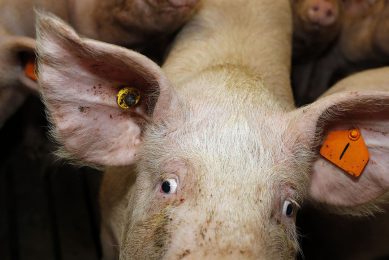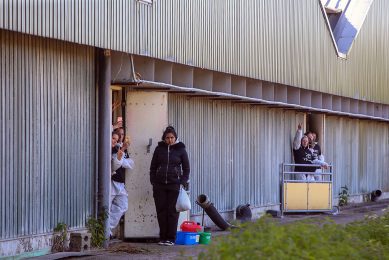Getting paid for the data generated on pig farms

A new software platform just released in Canada will herald a new era where (swine) farmers are paid for data they now share for free.
As the use of precision agriculture and automated farm systems spreads, farmers as a group are generating greater and greater amounts of data – data that’s very valuable to corporations and governments alike.
More and more livestock and poultry barns now have automated environmental control systems. Precision feeders, each having an ‘Internet of Things’ (IoT) sensor connected to the internet, are also becoming more common, and number of robotic dairies is also growing. A huge amount of precision agriculture data, from seed planting rate to fertiliser rate to crop yield, is being gathered from more and more farm equipment worldwide.
Large amount of farm data currently not shared
Besides all this internet-connected data generation, pig, poultry and dairy farmers also have a large amount of data that is not currently shared and could be shared – and monetised. This includes which livestock genetics, barn cleaners, feed and probiotics are used on farms, as well as rate of animal weight gain, information about disease, pests and much more.
“Up to this point in time, farmers have had no control over how the data that’s already being generated on their farms is being used by corporations, and no payment for it,” explained Joel Sotomayor. “This is about to change.”
Blockchain platform for farm data
Mr Sotomayor is the co-founder of mPowered, a blockchain software platform launched recently in Guelph, ON, Canada. The system literally empowers farmers to easily control who has access to their data and get paid for sharing it, if they choose to do so. The blockchain aspect of the platform ensures data sharing is cryptographically secure and transparent.
The platform will also be available to everyday people who have access to any internet-based technology that generates personal data that companies and governments might want, including data from web searches and GPS data from smart phones and cars.
A data vault for each swine producer
Farmer participants will each have an mPowered ‘data vault’ to which they can add and store data. They will be approached by companies who want some or all of their data sets. The farmer can see what similar data sets have recently sold for (similarly to vehicle or real estate websites) and they can chose to sell at the price offered or negotiate. There is no cost to farmers to use the system; the companies that buy the data pay mPowered a percentage of the sale.

Joel Sotomayor was also involved in the development of the ‘Be Seen, Be Safe’ approach.
When asked how the system will handle a situation where a farmer inputs his own data and is not consistent or honest about how much feed he buys, rate of animal weight gain he is achieving, type of cleaners he uses and so on, Mr Sotomayor replied there is a 2-part contingency. There is an algorithm in mPowered that will detect anomalies and flag them, and data contributors will also be ranked accordingly in terms of the quality of their data.
Automatically collected farm data
And what about data already being automatically collected by crop-related precision agriculture firms, or by the firms that have installed an automated barn environment control system or robotic dairy? How will farmers get paid for this data that is already being accessed for no charge?
Mr Sotomayor predicted that as mPowered gets rolling, farmers will step up as a group and tell these companies that the data leaving their farm 24 hours a day is no longer free. “Remember that it only takes one automated barn system firm or robotic milking system firm to pay for data,” he said, “and all the others will also have to pay, or no one will choose their systems anymore.”

Precision farming and swine production is a long and winding road. Why?
The coming of a data democracy
Farmer demands and competition aside, Mr Sotomayor added that soon enough, corporations will have no legal choice whether to pay for data. “Big changes to privacy laws are coming in every country that will embed user rights,” he said. “Data being generated by you, on your farm is yours, and laws will guarantee your right to share or not share it, and for how much money.”
“The corporations know that a ‘data democracy’ revolution is coming,” he asserted. “I think farmers produce 2 things, products such a soybeans and livestock, and data. Data is the new oil.”











